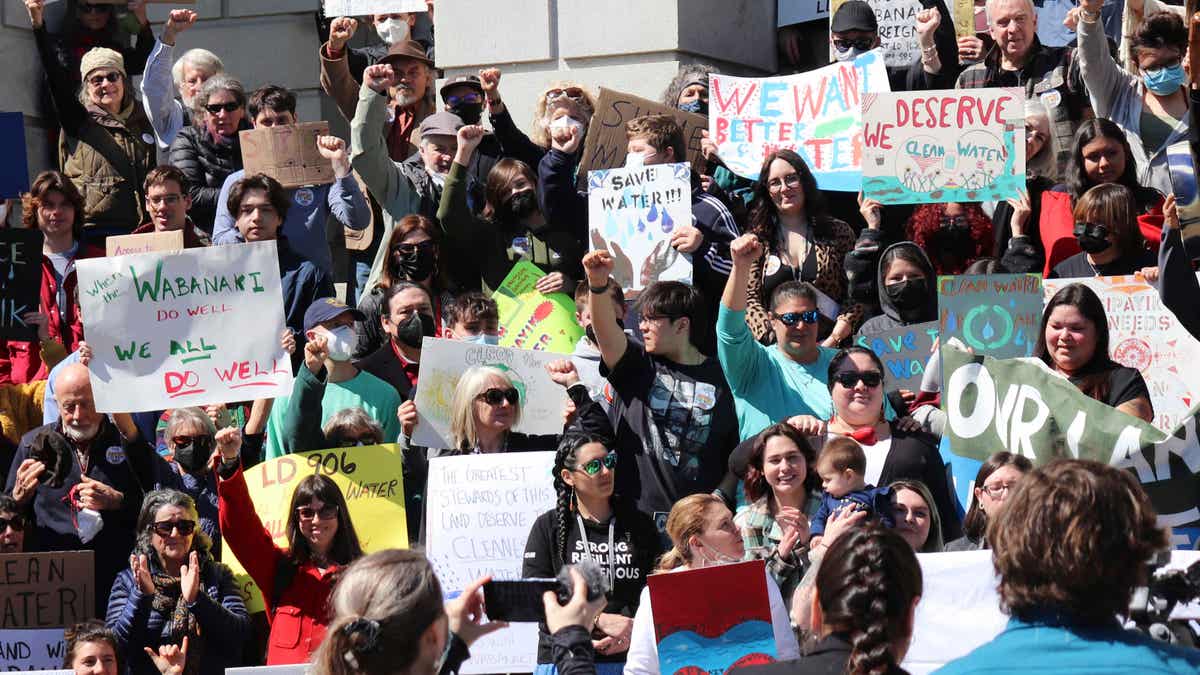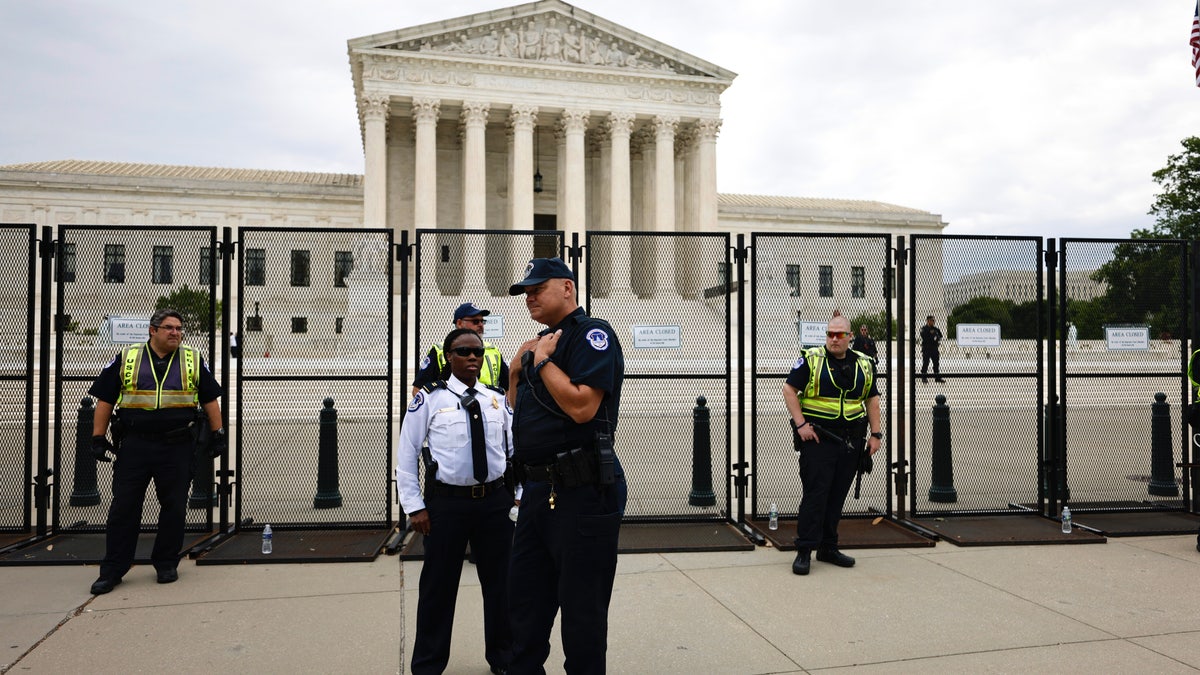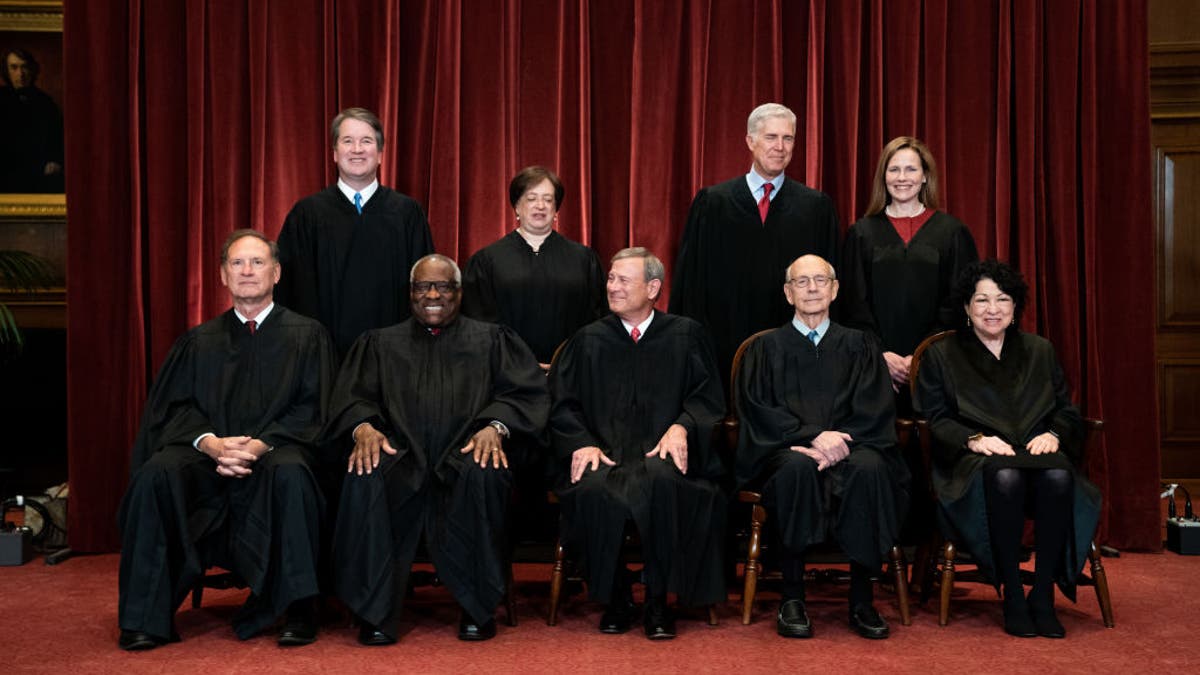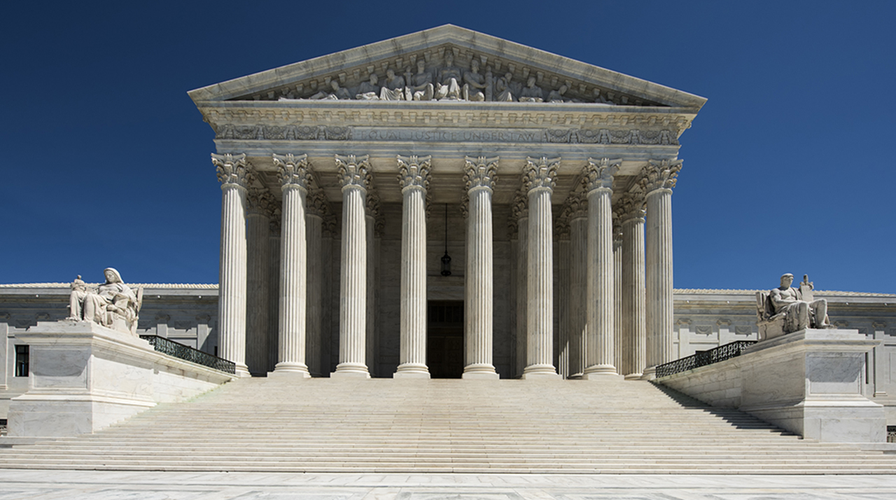WATCH LIVE: Supreme Court hears oral arguments in Haaland v. Brackeen
WATCH LIVE: Supreme Court hears oral arguments in Haaland v. Brackeen.
A divided Supreme Court offered measured support Wednesday for a federal law that gives placement preferences to Native American families in adoption and foster care matters involving Native children.
The issue is a clash of tribal sovereignty, states' rights and racial discrimination claims — and it was clear in more than two hours of oral arguments the justices were affected by emotionally driven points raised by lawyers on both sides.
At issue is whether the high court should toss out or severely dismantle the Indian Child Welfare Act (ICWA) of 1978, which is meant to protect Native American rights in state child custody proceedings. It has long been championed by tribal leaders as a means of preserving their families and culture.
But a group of white families — along with several states — seeking to permanently adopt Native children say they are being discriminated and disadvantaged in violation of equal protection guarantees in the Constitution.
GEORGETOWN LAW PROFESSOR SOUNDS OFF ON AFFIRMATIVE ACTION CASES, TOP STUDENTS ‘GETTING WAITLISTED’
In more than three hours of spirited arguments, the justices debated the legislative limits of a unique relationship between Native tribes and the federal government and the ability of state courts to broadly determine the discretionary "best interests" of children in placement hearings.

Native Americans are shown protesting Maine schools. (AP Photo/David Sharp, File)
"Congress understood these children's placement decisions as integral to the continued thriving of Indian communities," said Justice Elena Kagan. "And that's not something that we can second-guess, is it?"
But Justice Brett Kavanaugh addressed the racial discrimination claims.
"To get to the heart of my concern about this," he said, "you would agree that Congress couldn't give a preference for White families for White children, for Black families for Black children, for Latino families for Latino children, for Asian families for Asian children," in adoption or foster care matters.
Among those challenging the law are Jennifer and Chad Brackeen of Fort Worth, Texas, who had first fostered and then adopted a son, known in court papers as A.L.M., beginning in 2016 after his mother, a member of the Navajo Nation, was unable to care for him. The tribe sought to place the boy with other out-of-state tribal members not related to him.
The Brackeens eventually won custody of A.L.M but now would like to adopt the child's half-sister, identified in state proceedings as Y.R.J.
"It's been three and a half years in court, and we have not been able to finalize the adoption," Chad Brackeen told Fox News Digital. "Ultimately, these two siblings belong together."
But more than three-fourths of the 574 federally recognized American tribes told the Supreme Court in various amicus briefs that the law has been on the books for 44 years and is working.
"The precedent of the Supreme Court is that Indian tribes are political groups of people, they are not racial groups of people," said Chrissi Ross Nimmo, the deputy attorney general of Cherokee Nation. "Tribes determine citizenship ... just like countries."

A view outside the Supreme Court (Joshua Comins/Fox News)
BIDEN WHITE HOUSE DENIES PROSECUTING PRO-LIFE ACTIVISTS DESPITE CLEAR INCREASE IN ARRESTS
Many tribes warn of a broader loss of political sovereignty if the ICWA is struck down or weakened over such matters as health care, education and housing, which are all covered under specific federal laws.
Texas, Indiana and Louisiana have also challenged the federal law, saying it oversteps authority over state child custody matters.
In arguments, the court struggled to reconcile parallel claims over whether the federal law is discriminatory and whether the federal government has plenary — or unqualified — authority over relations with Native tribes.
"Congress has permitted tribes to exercise power over environmental regulations that have indirect effects off-reservation. That would seem to go, too," if the ICWA law was struck down, said Justice Neil Gorsuch. "We have laws that promise Native Americans access to sacred sites off-reservation and religious liberties off-reservation. That would seem to go."
"We'd be busy for many years striking things down … if this is the [judicial] line we're going to draw … very, very busy," Gorsuch added.
But Justice Samuel Alito worried about the extent of congressional authority.
"Could Congress go further than it has gone in ICWA and say that an Indian child may not be adopted by a non-Indian couple under any circumstances?" he asked. "If there are limits, it's hard for me to see where the limits are. That's where I need help."
And Justice Amy Coney Barrett — who with her husband, Jesse, have two adopted children from Haiti — questioned a provision in ICWA that gives preference to Native adoptive and foster parents even if they are not in the same tribe as the child.

Members of the Supreme Court pose for a group photo on April 23, 2021. (Erin Schaff-Pool/Getty Images)
CLICK HERE TO GET THE FOX NEWS APP
Alito, Kavanaugh and Chief Justice John Roberts also questioned the lawyer for the Justice Department about that provision. Roberts and his wife, Jane, have also adopted two children.
The consolidated cases are Haaland v. Brackeen (21-376); Cherokee Nation v. Brackeen (21-377); Texas v. Haaland (21-378); and Brackeen v. Haaland (21-380). A ruling is expected in the coming months.



